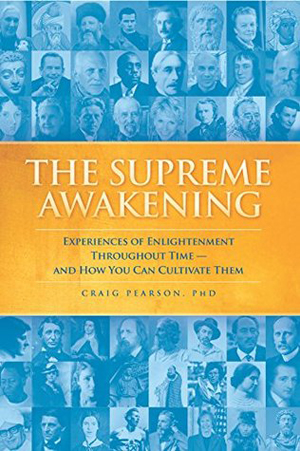
The formless free state
“… if the heart is ready to receive the highest,
it must rest on absolutely nothing …”
ECKHART VON HOCHHEIM (c. 1260–c. 1328), the German theologian, philosopher and mystic, more commonly known as Meister Eckhart, needs little introduction. One of the most learned and beloved teachers of the mediaeval period during a critical time in the evolution of European thinking, he was a pre-eminent Western intellectual who documented the Neoplatonic concept of oneness or the idea that the ultimate principle of the universe is one of a single and undivided whole.
Despite being tried as a heretic, Eckhart’s teachings, in which he fuses philosophy and religion with vivid originality and metaphysical passion, have grown in popularity over the centuries, influencing many eminent thinkers, including German philosopher Arthur Schopenhauer, Swiss psychoanalyst Carl Jung and Swedish diplomat and Secretary-General of the United Nations, Dag Hammarskjöld.
In modern times, Meister Eckhart’s message has forged a syncretic link between Western nondualism and Eastern mysticism. Indeed, his startling prose exhibits many esoteric parallels specifically with Buddhist and Vedic literature, not least the following extract taken from Letter 28 of his Sermons & Treatises, in which he examines how detachment yields the highest state of happiness.
The mind of him who stands detached is of such nobility that whatever he sees is true and whatever he desires he obtains and whatever he commands must be obeyed. And this you must know for sure: when the free mind is quite detached, it constrains God to itself and if it were able to stand formless and free of all accidentals, it would assume God’s proper nature … The man who stands thus in utter detachment is rapt into eternity in such a way that nothing transient can move him …
Now you may ask what this detachment is that is so noble in itself. You should know that true detachment is nothing else but a mind that stands unmoved by all accidents of joy or sorrow, honour, shame or disgrace, as a mountain of lead stands unmoved by a breath of wind. This immovable detachment brings a man into the greatest likeness to God. For the reason why God is God is because of His immovable detachment and from this detachment, He has His purity, His simplicity and His immutability. Therefore, if a man is to be like God, as far as a creature can have likeness with God, this must come from detachment. This draws a man into purity, and from purity into simplicity, and from simplicity into immutability, and these things make a likeness between God and that man …
You should know that the outer man can be active while the inner man is completely free of this activity and unmoved … Here is an analogy: a door swings open and shuts on its hinge. I would compare the outer woodwork of the door to the outer man and the hinge to the inner man. When the door opens and shuts, the boards move back and forth but the hinge stays in the same place and is never moved thereby. It is the same in this case if you understand it rightly.
Now I ask: What is the object of pure detachment? My answer is that the object of pure detachment is neither this nor that. It rests on absolutely nothing and I will tell you why: pure detachment rests on the highest and he is at his highest, in whom God can work all His will … And so, if the heart is ready to receive the highest, it must rest on absolutely nothing and in that lies the greatest potentiality which can exist …
Again I ask: What is the prayer of a detached heart? My answer is that detachment and purity cannot pray, for whoever prays wants God to grant him something or else wants God to take something from him. But a detached heart desires nothing at all, nor has it anything it wants to get rid of. Therefore it is free of all prayers or its prayer consists of nothing but being uniform with God. That is all its prayer …
Therefore it is totally subject to God, and therefore it is in the highest degree of uniformity with God and is also the most receptive to divine influence …
Now take note, all who are sensible! No man is happier than he who has the greatest detachment.
[Extract taken from The Supreme Awakening by Craig Pearson.]
Post Notes
- Feature image: Caspar David Friedrich, Woman Before the Rising Sun, Public Domain
- The Eckhart Society
- Vladimir Lossky: Eckhart’s Apophatic Theology
- Dag Hammarskjöld: Markings
- Julian of Norwich: Revelations of Divine Love
- The Cloud of Unknowing
- Teresa of Ávila: The Ecstasy of Love
- Hildegard of Bingen: Sibyl of the Rhine
- William Blake: All Religions Are One
- Michael Molinos: The Spiritual Guide
- The Culturium uses affiliate marketing links via the Amazon Associates Programme

